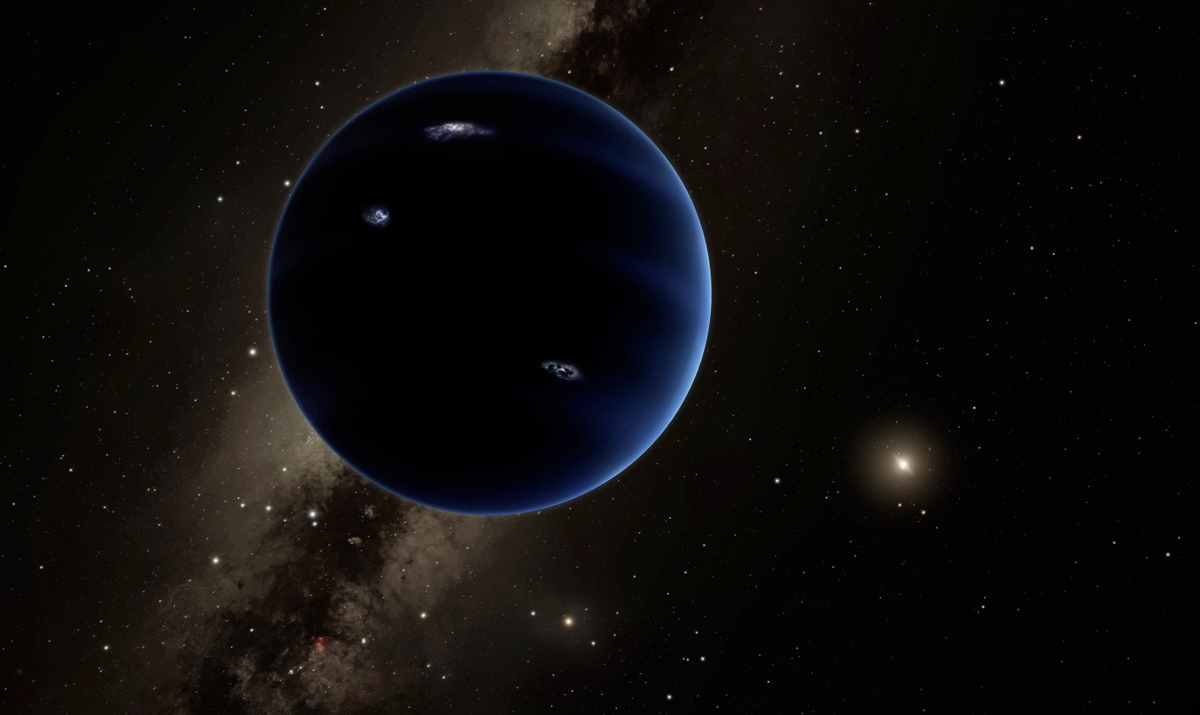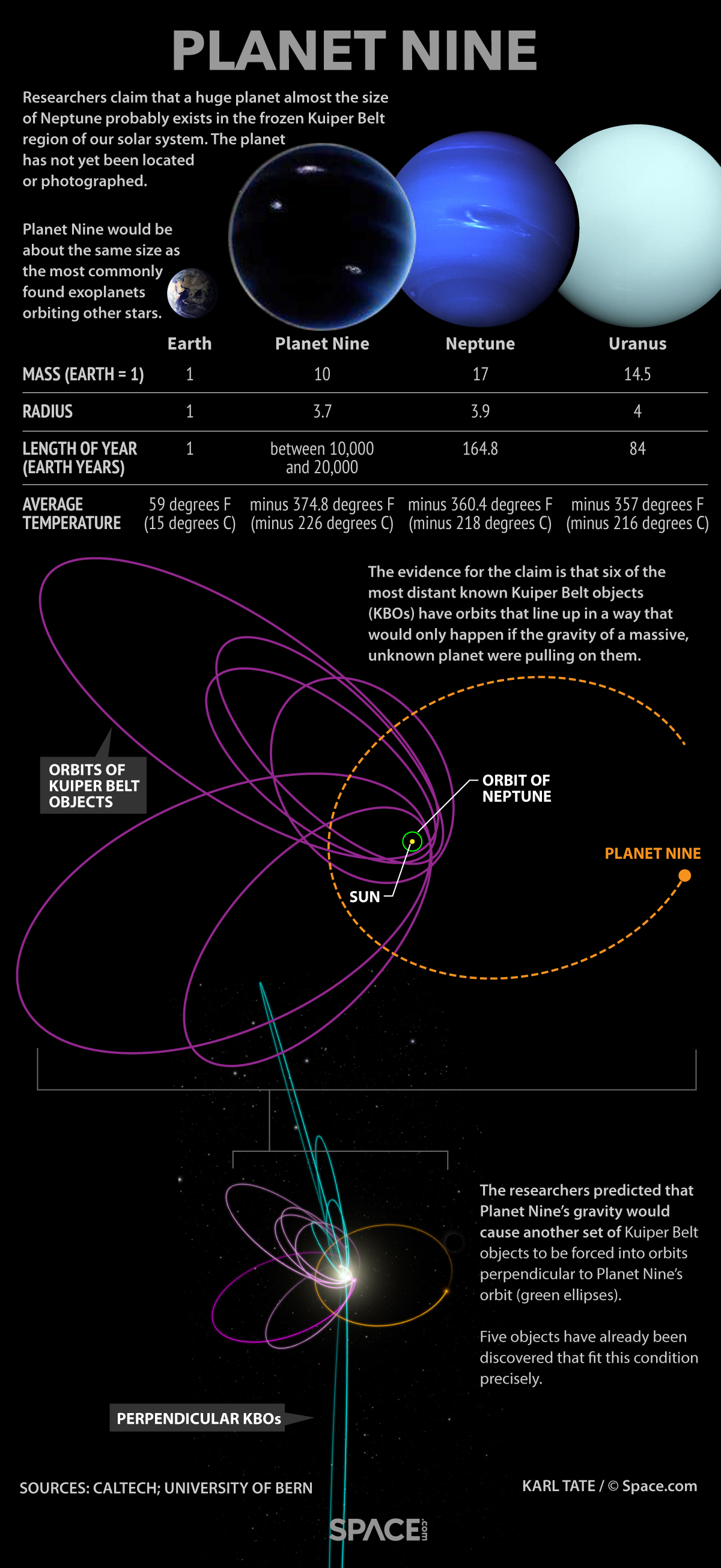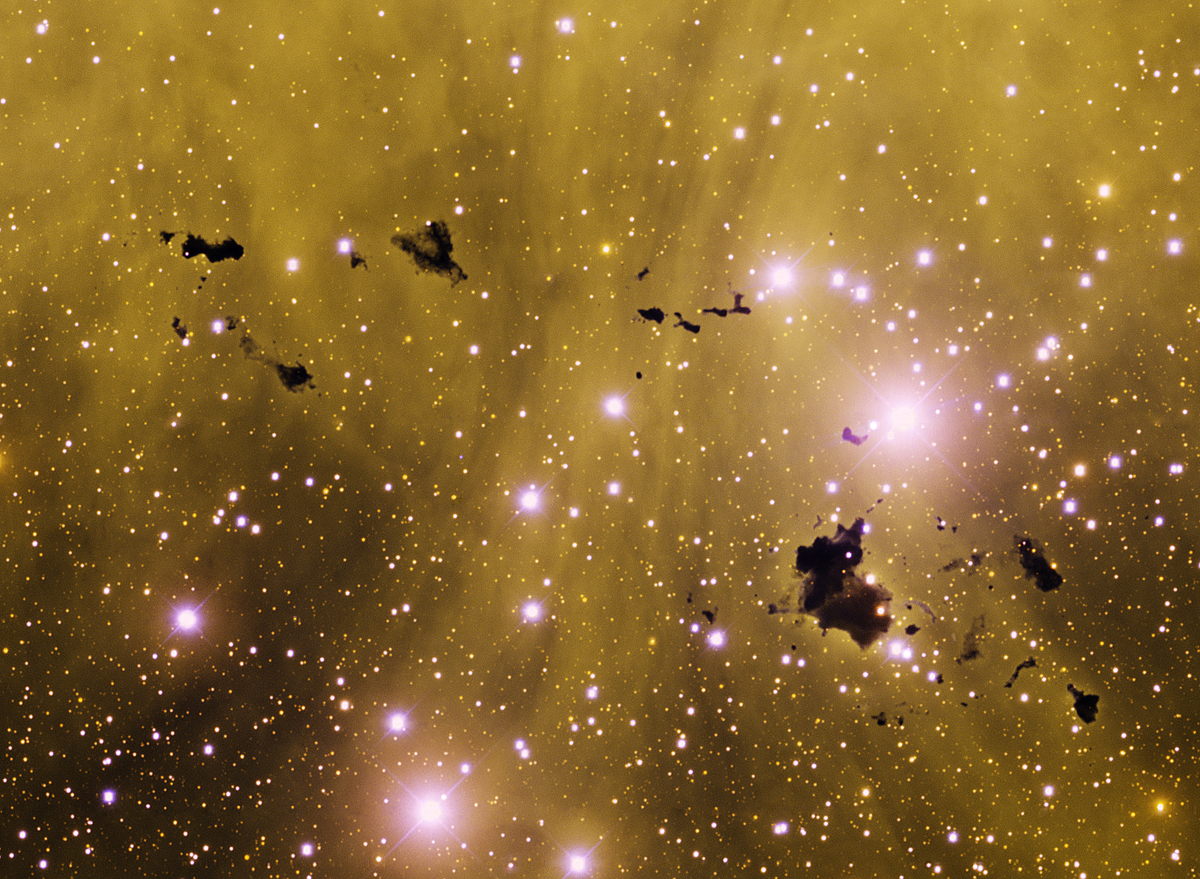Did the Mysterious 'Planet Nine' Tilt the Solar System?

PASADENA, Calif. — The putative "Planet Nine" may have tilted the entire solar system, researchers say.
In January, astronomers revealed evidence for the potential existence of another planet in the solar system. Researchers suggest that if this world — dubbed Planet Nine — exists, it could be about 10 times Earth's mass and orbit the sun at a distance about 500 times the distance from the Earth to the sun.
Previous research suggested that Planet Nine would possess a highly tilted orbit compared with the relatively thin, flat zone in which the eight official planets circle the sun. This led scientists to investigate whether Planet Nine's slant might help explain other tilting seen elsewhere in the solar system. [The Evidence for 'Planet Nine' in Images (Gallery)]
Now, researchers suggest that Planet Nine's influence might have tilted the entire solar system except the sun.
"Planet Nine may have tilted the other planets over the lifetime of the solar system," said study lead author Elizabeth Bailey, an astrophysicist and planetary scientist at the California Institute of Technology in Pasadena.
Prior work found that the zone in which the eight major planets orbit the sun is tilted by about 6 degrees compared to the sun's equator. This discrepancy has long been a mystery in astronomy.
Bailey and her colleagues ran computer simulations that suggest that the tilt of the eight official planets can be explained by the gravitational influence of Planet Nine "over the 4.5-billion-years-ish lifetime of the solar system," Bailey told Space.com.
Breaking space news, the latest updates on rocket launches, skywatching events and more!
Bailey did note that there are other potential explanations for the tilt of the solar system. One alternative is that electrically charged particles influenced by the young sun's magnetic field could have interacted with the disk of gas and dust that gave rise to the planets in ways that tilted the solar system. Another possibility is that there might have been an imbalance in the mass of the nascent sun's core.
"However, all these other ways to explain why the solar system is tilted are really hard to test — they all invoke processes that were possibly present really early in the solar system," Bailey said. "Planet Nine is the first thing that has been proposed to tilt the solar system that doesn't depend on early conditions, so if we find Planet Nine, we will be able to see if it's the only thing responsible for the tilt, or if anything else may have played a role."
The scientists detailed their findings yesterday (Oct. 18) at a joint meeting of the American Astronomical Society's Division for Planetary Sciences and European Planetary Science Congress in Pasadena, California.
Follow Charles Q. Choi on Twitter @cqchoi. Follow us @Spacedotcom, Facebook and Google+. Original article on Space.com.

Charles Q. Choi is a contributing writer for Space.com and Live Science. He covers all things human origins and astronomy as well as physics, animals and general science topics. Charles has a Master of Arts degree from the University of Missouri-Columbia, School of Journalism and a Bachelor of Arts degree from the University of South Florida. Charles has visited every continent on Earth, drinking rancid yak butter tea in Lhasa, snorkeling with sea lions in the Galapagos and even climbing an iceberg in Antarctica. Visit him at http://www.sciwriter.us

